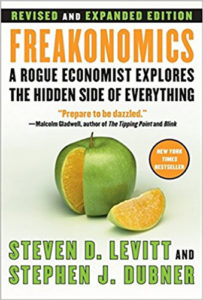BUSINESS
Accounting | Economics
Accounting | Economics
CONSTANTINIDOU MARIANNA (Head of the Economics and Accounting Department)
B.Sc (Double Major), MSc
University of Maine, USA
University of Westminster, UK
AZA MARIA
BA (Hons), Economics and Finance
University of Manchester, ICAEW (Professional Stage)
DEMETRIOU PANAYIOTIS
A.C.E.A., M.A.A.T., MSc
Jeff Wooller College, UK
Brunel University UK
HERA ERMIONI
BA (Hons) Accounting
Polytechnic of North London, UK
PANAYIDOU POPI
BA (Hons) Accounting and Finance, MBA
University of Lancaster, UK
University of Wales College of Cardiff, UK
It is the systematic and comprehensive recording of financial transactions pertaining to a business. The purpose of accounting is to accumulate and report on financial information about the performance, financial position, and cash flows of a business.
Grades 4 & 5 (elective): The subject prepares students for the Pearson Edexcel International GCSE. This qualification consists of two externally-examined units. The subject aims to provide an understanding of the nature and purpose of Accounting in business and non-profit organisations, and of the principles on which accounting is based. Furthermore, the subject teaches the student to prepare and understand the accounts, and to apply accounting principles to the solution of relevant problems. The course comprises of five topics: the accounting environment, introduction to bookkeeping, introduction to control processes, the preparation of financial statements, accounting for end of period adjustments.
Grades 6 & 7 (elective): The subject prepares students for the Pearson Edexcel International GCE Advanced level examinations. This qualification consists of two externally-examined papers. The aims of the subject are: to develop the ability to comprehend and comment upon accounting information given in various forms; to encourage the ability to compile accounting reports and use them in decision-making; to develop the ability to discuss accounting concepts and conventions. Furthermore, the subject teaches students to be able to apply the principles of financial and management accounting, to discuss current accounting problems, and to present accounting information in a cogent manner. Unit 1 includes topics like: principles of accounting, control procedures, financial statements, costing, analysis of accounting statements, social and ethical accounting. Unit 2 includes topics like: limited companies, investment ratios, cash flow statements, budgeting, standard costing, project appraisal, ICT in accounting etc.
Many students who take accounting go on to become qualified accountants, working for accountancy practices or within an organisation. It is a subject which provides an ideal foundation for those wishing to study accounting, economics or any other finance related courses at university.
Most simply put, it is the study of making choices -how resources are allocated to satisfy the unlimited wants and needs of governments, firms and individuals.
Grades 4 & 5 (elective): Economics is a social science which seeks to explain the economic basis of human societies. The subject prepares students for the Pearson Edexcel International GCSE in Economics. This qualification consists of two externally-examined papers. It examines the following main basic principles relating to the micro and macro economy: Scarcity of Resources; Demand and Supply; Determination of Prices; Different types of Markets and Firms; Production and Factors of Production; Money and Banking; Macroeconomic objectives; International Trade, and Public Finance. The subject enables students to interpret and evaluate economic data so to make reasoned arguments, to understand economic issues and problems that affect economies as well as to participate effectively in society as producers and consumers.
Grades 6 & 7 (elective): The subject prepares students for the Pearson Edexcel Advanced GCE in Economics A. This qualification consists of three externally-examined papers. The syllabus is structured into four themes. Themes 1 and 3 deal mainly with Microeconomic issues such as Demand and Supply, Rational Decision Making, Externalities, the Behaviour of Firms, Pricing Strategies, Government Intervention etc. Themes 2 and 4 deal with the Macroeconomic issues such as Unemployment, Inflation, Economic Growth, International Trade, Public Finances, Poverty, Inequality etc. Paper 1 assesses microeconomics and questions are drawn from Themes 1 and 3. Paper 2 assesses macroeconomics and questions are drawn from Themes 2 and Theme 4. Paper 3 assesses content across all four themes. The subject helps students to develop analytical and quantitative skills, to understand various economic concepts and be able to use them in different contexts as well as to be able to think as an economist.
Studying Economics helps students develop various skills which are not only useful for studying at university but they are also highly sought after by employers. Suitable higher education courses include degrees in: economics, finance, accounting, business, management etc. Economics graduates find employment in different areas including: government, banks, insurance companies, accountancy firms, shipping companies, marketing etc.

